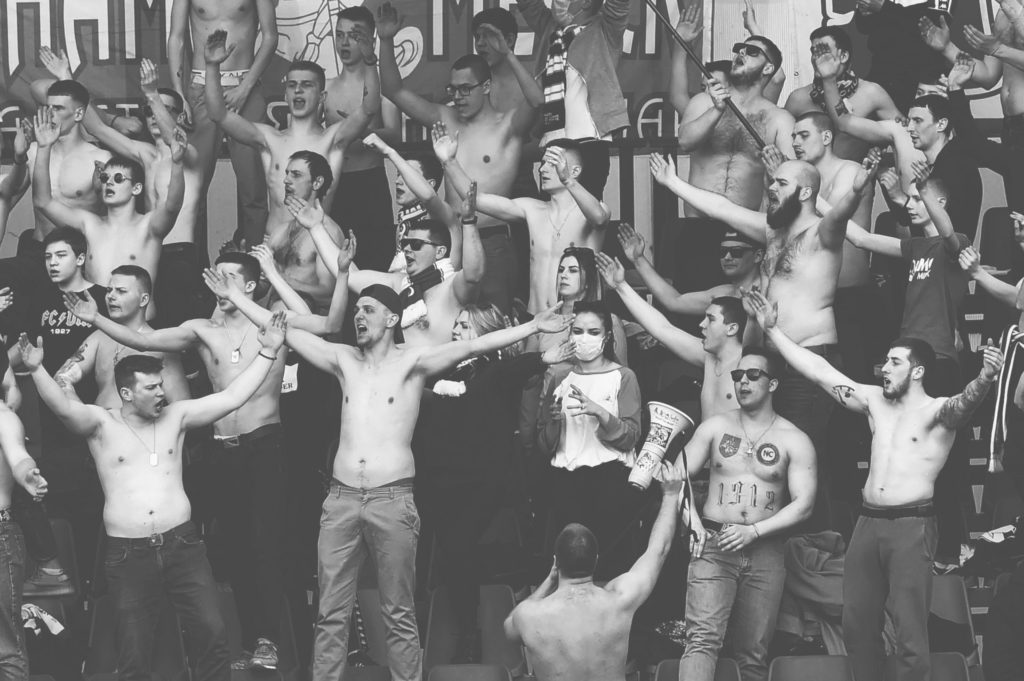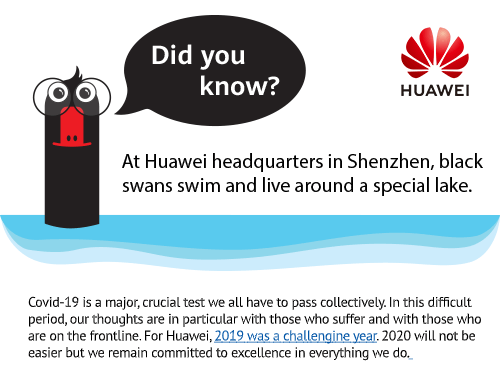BRUSSELS BEHIND THE SCENES
Weekly analysis and untold stories
With SAMUEL STOLTON
Other Brussels behind the scenes stories:
What the hell happened to Viktor Orbán
Europe: An unpeopled world, a silent beauty
Brussels is not a city of solitude
In Brussels, a sneeze tells a different story
Coronavirus in Europe's last dictatorship
A miscellany of pink, smooth and sweaty torsos greets the balmy Spring sun on a Saturday afternoon at the FC Minsk Stadium in Belarus’ Capital.
Bare-chested and buoyant, these fans unbolt their heavy jaws and sing anthems of hope and glory to the football gods. All over the continent at this time, these are the only supporters to have the liberty to do so. Amid the current crisis narrative, the ‘freest’ are those living in Europe’s last dictatorship.
Sent out every Friday afternoon, BRUSSELS BEHIND THE SCENES brings the untold stories about the characters driving the policies affecting our lives. Analysis not found anywhere else, The Brussels Times' Samuel Stolton helps you make sense of what is happening in Brussels.
If you want to receive Brussels behind the scenes straight to your inbox every Friday, subscribe to the newsletter here.
Belarus lies on Europe’s eastern borders, landlocked by Lithuania and Latvia to the northwest, Russia to the northeast, Poland to the west and Ukraine to the south. The country, which has a population of almost 10 million, is a Presidential republic with Alexander Lukashenko in power since 1994. From that time, electoral integrity has failed to meet international standards and political opposition has been violently supressed.
The country has the worst Democracy Index rating in Europe and in the 2019 Press Freedom Index, Reporters Without Borders said that “critical journalists and bloggers are threatened and arrested, leading news sites are blocked, and access to information is restricted.” Belarus is also the last country in Europe to uphold capital punishment. The chosen method is a bullet to the back of the head with a Soviet PB-9 Pistol.
President Lukashenko has flamboyantly dismissed the coronavirus as a ‘psychosis’ and has advocated for such Belarussian pastimes as drinking vodka and taking saunas as potential remedies. During a recent ice hockey match in which he took part, Lukashenko said that even playing sport could help fend off the virus. “It’s better to live standing up than die on your knees,” he said. His stance has caused alarm in the region, with Lithuanian Prime Minister Saulius Skvernelis saying that the policy may result in Belarus becoming “an uncontrolled hotspot” for coronavirus.
Despite the sense of brazenness emanating from the Belarussian government, there is not a shortage of worry in the country with regards to the creeping tread of the virus.
I am speaking to Franak Viačorka, a Minsk-based journalist who has previously been jailed for taking a stand against the government. As we talk over the phone, he sees officials walking into a KGB building. None of them are wearing masks, he says.
“People are scared of two things in particular,” Viačorka says. “There is one fear of the virus itself and another fear of speaking out. Medical professionals and healthcare workers have been scolded by the government for trying to highlight the pressure that hospitals are under.”
At the time of writing, reports state there have been just under 1,500 recorded cases of the coronavirus in Belarus, with only 16 deaths.
For their part, journalists face risks too. Sergei Satsuk, the editor of the online news outlet Yezhednevnik, which conducts investigations into the country’s healthcare system, was arrested on March 25 on a corruption charge. In the days leading up to his arrest, he had criticised Lukashenko’s managing of the crisis and cast doubt on government figures detailing the contraction rate. The Belarussian Association of Journalists has called for Satsuk’s immediate release.
BRUSSELS BEHIND THE SCENES POWERED THIS WEEK BY
Despite the government’s attempts to disregard the severity of the coronavirus, citizens in Belarus are taking it upon themselves to don the mask of responsibility, Viačorka says.
“There has been the emergence of a sense of civic responsibility in Belarus,” he says. “The public is crowdfunding to support medical authorities, students are offering their help to the elderly, hospitals are reaching out to media organisations and activists to ask for publicity concerning their struggle.”
“Never before have we seen such broad civic coordination. The coronavirus has mobilised different sections of the community.”
Viačorka believes that as a populist politician, Lukashenko will eventually be cowed into a position where he is forced to introduce more stringent containment measures to appease his critics. “As more and more people die, the pressure from society will be huge,” Viačorka says.
The Belarussian representation to the EU did not respond to my request for a response on whether Lukashenko would be open to the idea of reconsidering his policy, but recent news from Brussels suggests that the government is cognizant of the need for support.
The EU’s Foreign Affairs Chief recently disclosed that Belarus had requested assistance “for its healthcare system and to address the macro-financial and macroeconomic impact of this situation,” despite Lukashenko’s lax attitude.
Borrell responded to the request by handing the Belarus government a cheque for €60 million, to which country’s Ministry of Foreign Affairs adopted a tone of acquiescence, saying that his country’s move to seek EU help was “logical,” but that in the bloc’s yearly provision of structural funds to the country, “Belarus receives much less than most other countries.”
There have been those questioning the EU’s coronavirus outlay to Europe’s last dictatorship. But as the country continues to come under pressure from Putin to consider unification with Russia, eastward relations have soured and Belarussians are increasingly looking to Brussels for support. During a December meeting between Putin and Lukashenko last year, protestors took to the streets of Minsk. Upset at the prospect of deepening integration with Russia, some demonstrators yielded EU flags.
Since the coronavirus outbreak in the region, the Belarus Football Federation has signed 10 new broadcasting rights deals with countries ranging from India to Israel. The sport in the country is currently in the midst of an unprecedented global popularity.
But, watching the half-naked, carefree and jubilant fans in the stands of the FC Minsk Stadium as they belt out their vigorous hymns of honour and reverence, one only has to ask: At what cost, this newfound fame?
Sent out every Friday afternoon, BRUSSELS BEHIND THE SCENES brings the untold stories about the characters driving the policies affecting our lives. Analysis not found anywhere else, The Brussels Times' Samuel Stolton helps you make sense of what is happening in Brussels.
If you want to receive Brussels behind the scenes straight to your inbox every Friday, subscribe to the newsletter here.


